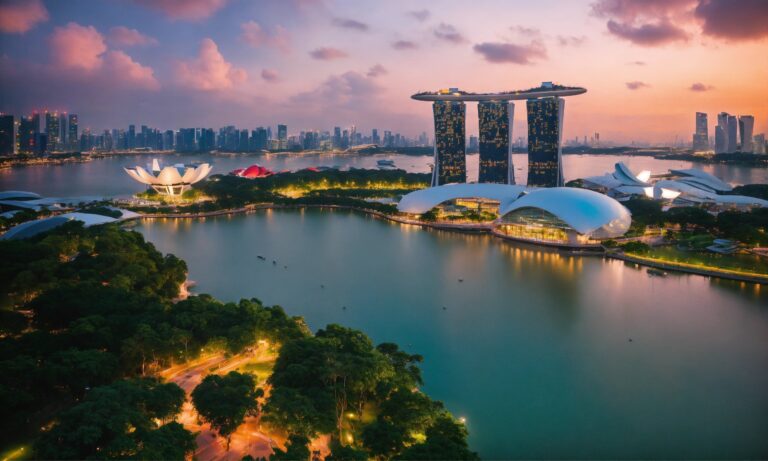Introduction to Rwanda
Known as the “Land of a Thousand Hills,” Rwanda is located in East Africa and is one of the continent’s most historically and culturally distinct countries. It is bordered to the north by Uganda, to the east by Tanzania, to the south by Burundi, and to the west by the Democratic Republic of the Congo. Rwanda’s geographical location is characterized by its rugged terrain and picturesque mountains, making it one of the unique tourist destinations.
Over the centuries, Rwanda has been greatly affected by internal conflicts and social changes. Its modern history began in the early 20th century with the advent of German and Belgian occupation, which contributed to the deepening of divisions between the main ethnic groups: Tutsis and Hutus. This tension in society affected politics and the economy, eventually leading to the genocide in 1994, which resulted in the deaths of an estimated 800,000 people.
After the disaster, Rwanda has rebuilt remarkably and has focused efforts on national reconciliation and economic development. The government has achieved relative political stability and boosted economic growth through investments in education, health, and infrastructure. The past few years have also seen significant transformations, with Rwanda becoming a country with greener policies and more advanced information and technology.
Today, Rwanda has a growing reputation as a safe and prosperous destination, attracting visitors seeking diverse cultures and a rich history. With a focus on innovation and sustainable development, Rwanda aims to become a leader in Africa.
Religion in Rwanda
Rwanda is a country with remarkable religious diversity, encompassing a wide range of beliefs and faiths. The official religion in Rwanda is Christianity, with an estimated 85% of the population following one of the Christian denominations, including Catholic, Protestant, and Baptist churches. There are also small Muslim communities that are part of the religious fabric of the country. In addition, there are traditional religions and indigenous beliefs that represent aspects of Rwandan culture.
Religion continues to have a significant impact on the daily lives of Rwandans. It contributes to shaping moral and social values among individuals, with religious rituals playing a pivotal role in community life. Religious practices in Rwanda reflect aspects of the country’s cultural and historical heritage, with many social activities and life cycles tied to religious events, such as celebrations and festivals.
Religion is also an important factor in social integration among members of society. This phenomenon is evident in how it brings people from diverse cultural and religious backgrounds together to practice their religion, which enhances mutual understanding and unity. In the context of rebuilding the country after a period of conflict, religious values have encouraged the promotion of peace and reconciliation, which has helped to strengthen relations between different communities. Thus, it can be said that religion in Rwanda is a fundamental element of cultural identity and has a profound impact on the social fabric.
What is Rwanda famous for?
Rwanda is a unique tourist destination in Africa, with a range of tourist attractions and cultural activities that make it an interesting destination. The country is known for its stunning landscapes that include mountains and green plains, making it an ideal place for ecotourism. One of the most popular activities for tourists is visiting the bamboo forests, which allow visitors to head into the forests to see the rare mountain gorillas. Tourists participate in hiking trips that last for several hours, to witness these amazing creatures up close in their natural habitats.
Furthermore, Rwanda offers a rich cultural experience, where visitors can immerse themselves in the country’s traditions and daily life. There are many cultural events that reflect traditional arts, including traditional dances and music. Several cultural villages provide visitors with the opportunity to learn about local handicrafts and the nation’s history, contributing to an enhanced knowledge of Rwanda’s cultural practices.
Nature reserves also play a major role in attracting tourists, where visitors can enjoy watching a wide range of wildlife. Rwanda offers amazing opportunities for mountain climbers and nature lovers to explore areas such as Birungu National Park. Local concerts and cultural festivals, such as the Rwandan Music Festival, enhance their tourist experience.
Overall, Rwanda offers a unique blend of natural and cultural treasures that attract visitors from all over the world, making it one of the most sought-after tourist destinations to explore.
Life in Rwanda
Rwanda is one of the African countries that has witnessed a remarkable improvement in the quality of life over the past two decades. This is evident through significant improvements in health, education and standard of living. Despite the challenges the country has faced in the past years, Rwanda continues to work to improve the lives of its citizens through pivotal development strategies.
In the area of health, the Rwandan government has made significant investments to improve the health care system. A wide range of medical services are now available, and citizens can access basic health care with relative ease. In addition, vaccination and health awareness programs have been implemented, which have helped reduce mortality rates and improve public health outcomes. Hospitals and health centers are available in both towns and villages, highlighting the commitment to improving community health.
In terms of education, Rwanda has worked to improve its education system significantly. It includes public and private schools, with a focus on primary and secondary education. The authorities are working to raise the level of education through teacher training programs and the provision of necessary study materials. Education is considered a vital factor for sustainable development, and Rwandan students have seen an improvement in their academic skills and abilities thanks to these government initiatives.
In terms of living standards, Rwanda shows an improvement in the economic conditions of its citizens. Many work in agriculture, while new sectors such as tourism and small industries are developing. Cities such as Kigali are symbols of progress, where visitors will notice modern infrastructure, thriving markets, and collaborative communities. This reinforces the idea that, despite the challenges, the lives of people in Rwanda are constantly changing.
Economy and job opportunities in Rwanda
Rwanda has an emerging market economy, which has witnessed significant growth in various sectors over the years, which has contributed to improving the standard of living of many citizens. Agriculture is the main sector in the Rwandan economy, as most of the population depends on agriculture as their main source of income. However, the Rwandan government is seeking to diversify the economy by encouraging industries and services.
Rwanda’s overall economic trends include significant investments in infrastructure, education, and technology, opening up new avenues for increased employment opportunities. Although poverty rates remain a major challenge, there has been a marked improvement in recent years. The World Bank report indicates that poverty rates are gradually declining, reflecting the government’s efforts to promote sustainable growth.
However, many challenges remain in the Rwandan labor market. For example, there is an urgent need to develop skills to meet the growing market demand for skilled workers. The loss of jobs due to the inability to adapt to technological changes can exacerbate unemployment problems. In addition, several obstacles, such as limited funding and lack of infrastructure in some areas, make it difficult for young people to enter the labor market.
Despite these challenges, job opportunities in Rwanda remain promising. The Rwandan government offers incentives to investors and supports small and medium enterprises, which enhances the chances of success for individuals. To build a prosperous future in Rwanda, economic policies need to focus on education and sustainable development to enhance the ability of the local workforce to compete with the global workforce.
Safety and Security in Rwanda
Rwanda is one of the countries that has seen dramatic changes in terms of safety and security over the years. The country’s history of conflict, most notably the 1994 genocide, has left a deep mark on Rwandan society. However, since then, the government has worked to stabilize the country and ensure safety for its citizens and visitors. Current statistics show that Rwanda is among the safest countries in Africa, ranked as one of the countries with the lowest crime rates.
Despite this marked improvement, there are still some misconceptions about the security situation in Rwanda. Some believe that historical conflicts still affect the current situation, causing them to view the country with distrust. Individuals residing or visiting Rwanda should be aware that the government has made significant efforts to achieve effective peace and normalize daily life. The presence of security forces in various areas is one sign of Rwandans’ commitment to maintaining security, which has contributed to building confidence among citizens.
It is important to emphasize that Rwanda is not just a country living in the shadow of past conflicts, but a country looking to the future. Inclusiveness and cooperation between different segments of society are part of the country’s strategy to ensure sustainable security and peace. In addition, Rwanda is witnessing continuous development in infrastructure, which enhances the possibility of living in a safe and healthy environment. All these factors have contributed to making Rwanda a safe destination for those who wish to visit or live in it.
Social and economic development in Rwanda
Following the turbulent times of the 1990s, Rwanda has undergone remarkable social and economic transformations that are shaping its future. The Rwandan government has put in place strategies aimed at boosting economic growth, improving the living standards of its citizens, and promoting social stability. By focusing on key sectors such as agriculture, tourism, and industry, Rwanda has become one of the most progressive countries on the African continent.
Rwanda is currently seeking to become a technology hub in Africa, with several technology initiatives being rolled out. For example, the Kigali Technology Hub has been established to promote innovation and attract foreign investment. In addition, digital economy initiatives have expanded to improve public service delivery and boost economic growth, contributing to increased transparency and reduced corruption.
On the social side, significant progress has been made in girls’ education and gender equality, with the government working to raise awareness of the importance of everyone’s participation in education and the economy. This move has a positive impact on civil peace among different social groups. Government programs and community projects also contribute to improving the quality of life, by providing job opportunities and implementing sustainable development strategies.
Through these developments, Rwanda is demonstrating a strong willingness to strengthen its position in the international community. The country has achieved positive growth indicators and has become a role model in the areas of social and economic development, reflecting its strength and ability to adapt to global challenges.
Islamic Religion and Culture in Rwanda
Islam is a religion that has a significant presence in Rwanda, with an estimated 7% of the total population of the country being Muslims. The history of Islam in Rwanda dates back to the 19th century, when Islam began to spread through Arab traders who came to the region. Although Islamic culture was not prominent before that period, its influence on the local community has become noticeable over time.
Muslims in Rwanda seek to live in peace and share their Islamic values within the country’s diverse cultural fabric. Muslims are well represented in daily life, with many mosques in major cities such as Kigali, making it easier for the community to practice their religious rituals and worship. Islamic activities practiced by Muslims in Rwanda include religious education, with parents keen to educate their children on Islamic values and the teachings of the Quran.
An important aspect of Muslim culture in Rwanda is how they integrate into the general culture. Although some cultural differences may exist, Rwandans of different religions, including Islam, share certain traditions and social customs that contribute to national unity. This religious and cultural diversity reflects the ability of Rwandan society to accept differences and promote interfaith understanding. These characteristics make Ovnía a unique place where Muslims live in harmony with the rest of society, reflecting the spirit of openness and tolerance that prevails in the country.
Conclusion: Is Rwanda Worth a Visit?
Rwanda is one of Africa’s growing tourist destinations, offering a unique experience that blends rich culture, stunning landscapes, and complex history. What makes Rwanda such an interesting destination is its ability to bounce back after crises, turning its past into a past of learning and development. Visitors have the opportunity to explore the amazing wildlife in national parks such as Volcanoes National Park, where endangered mountain gorillas can be seen in their natural habitat.
Moreover, Rwanda’s culture is rich and diverse, where visitors can immerse themselves in traditional arts and crafts, and taste local cuisine that reflects the country’s cultural heritage. The Rwandan people are also known for their hospitality and generosity, which enhances the visitor’s experience and makes it an unforgettable one.
On the other hand, Rwanda’s exploration interest is not limited to tourism only; there are also promising investment opportunities in various sectors such as agriculture, technology, and tourism itself. The government in Rwanda is working hard to support businesses and provide a comfortable investment environment, making it an attractive destination for investors.
So, if you are thinking of visiting Rwanda, there are plenty of activities and places to explore, and it is recommended to plan well to ensure that your trip is enriching and rewarding. It also requires respecting the local culture and customs while visiting, which will help to enhance the experience greatly. Rwanda is definitely worth a visit, whether you are looking for an adventure or an investment opportunity.






